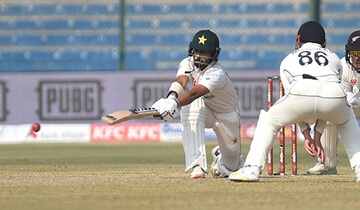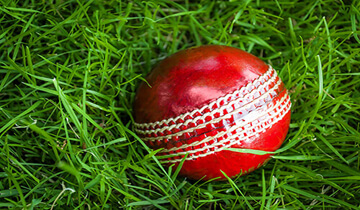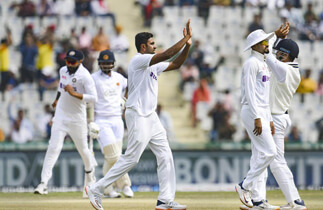How Rugby is Played
In a game of rugby, play begins with a kickoff. The ball gets tossed into the air by one team, and players from both teams jump and try to gain possession. From there, the battle for the ball commences. Teams can advance the ball by carrying it, kicking it or passing it along a line of teammates.
When in possession, the aim is to ground the ball past the opposing team’s try line. This scores a “try” and earns 5 points. After a try, there is an opportunity to score more points by kicking the ball through the goal posts.
Defense is also crucial in rugby. When not in possession, the objective is to prevent the opposing team from advancing and scoring. Tackling and rucks (a loose scrum over the ball) are used to contest possession. Big hits and physicality are part of what makes rugby such an exciting sport.
Now, you may be wondering, “How long is a rugby match?” The standard length of a rugby match is 80 minutes, divided into two halves of 40 minutes each.
What is a Try?
A try is scored when a player grounds the ball over the opponent’s try line and in the in-goal area. This is worth 5 points. Originally, grounding the ball only gave the attacking team a chance to kick at goal for points, which is where the name “try” comes from.
How to Score a Try
To score a try, an attacking player must be the first to ground the ball after crossing the try line and into the opponents’ in-goal area. This is usually done by placing the ball on the ground with downward pressure. The ball must be under control when it is grounded.
Point Value of a Try
A try is worth 5 points in rugby union and rugby league. It is the most valuable way to score points. After a try is scored, the scoring team gets to attempt a conversion kick which is worth 2 additional points if successful.
Origin of the Name “Try”
Originally in rugby, grounding the ball only gave the attacking team the chance to take a kick at goal. This kick was called a “try” at goal, which is where the name comes from. The kick itself was worth zero points at first. Over time, the try itself was made worth points.
Skills Needed to Score Tries
To score a try, good handling skills are often needed to maintain possession and break through the defensive line. Speed, strength and evasion are also key to beating defenders and grounding the ball. A well-executed set move from a lineout or scrum can create the overlap needed to allow a player to touch down.
Importance of the Try
The ability to score tries is a key part of a successful rugby team. The celebrations that follow a try with teammates show how important and exciting this method of scoring is in the sport of rugby.
How to Score a Try in Rugby
Scoring a try in rugby requires precision, speed, and a little bit of power. A try is worth 5 points and is the primary way to score points in rugby union and rugby league. Here are the key steps to scoring this all-important score:
Get in Position
The first step is to work the ball into a position to be able to get it over the try line. This usually requires building through multiple phases, retaining possession, and working the ball towards the try area through runs, passes, kicks, and set piece plays. Good vision and handling skills are needed to move the ball effectively into position.
Beat the Defense
Once near the try line, the attacker must get through or around the defensive line. This could involve a sidestep to beat the last defender, a powerful leg drive to break through tackles, or finding gaps in a stretched defense. Pace and evasion skills help beat defenders in a one-on-one situation near the try line.
Maintain Control
When crossing the try line, the player must be in full control of the ball. This means securing possession and not letting the ball be knocked or fumbled forward. It must clearly be a deliberate grounding, not just a loose ball that rolls over the line. Keep a firm grip and make sure the ball can’t be dislodged.
Ground the Ball
The final act is to ground the ball on or behind the opponents’ try line. The most common way is to simply press the ball to the ground with one or both hands, usually from a standing or kneeling position. If falling, the ball can be grounded by exerting downward pressure on it. As long as it’s a controlled action that forces the ball down over the line, the try will be awarded.
Celebrate
Once the referee signals the try, it’s time to celebrate with teammates! A try often results in joyous celebrations since it’s such a critical score in rugby. Enjoy the 5 hard-earned points!
Scoring tries at key moments can be match-winning plays in rugby. Follow these steps, combine athleticism and skill, and enjoy the thrill of touching down over the try line.
Converting a Try in Rugby
Scoring a try in rugby is a thrilling moment worth 5 points. But successfully converting the try through a kick at goal can add 2 extra crucial points. Here’s how teams can convert tries and maximize their scoring:
Act Quickly
After the referee signals a try, the scoring team must act swiftly to set up the conversion attempt. The kicker should grab the ball and place it where the try was scored to mark the spot. Teammates can help by providing the ball promptly and getting into supporting positions. There is only a short time allowed before the kick must be taken.
Choose Kicker Wisely
The kicker chosen to attempt the conversion should ideally be the team’s best striker off the tee. Having a trusted, accurate kicker with a proven record of successful conversions is key. For long distance kicks, choosing a kicker with a big leg is wise. Teams may have designated kickers play only when tries are scored and conversions needed.
Pick Your Approach
The kicker can attempt the conversion as a place kick off the ground or a drop kick out of the hands. The place kick is more common and often more accurate. But in wet or muddy conditions, a drop kick may allow more control. The kicker should choose the approach they are most comfortable with in the situation.
Strike the Ball Well
The most important part is the strike itself. The kicker must make clean contact with the ball, driving through the sweet spot with their foot or leg. Keeping balanced, relaxed and rhythmic in the run up helps achieve excellent ball-striking technique. Accuracy and straightness of contact are vital for getting the ball between the posts.
Celebrate 2 More Points
If executed correctly, the ball will sail through the uprights, earn 2 more points and the referee will raise their arm to confirm the conversion. The successful kicker should celebrate this achievement with appreciative teammates, as conversions frequently make the difference in close rugby matches.
Successfully converting tries into 7-point scores is a critical skill for rugby teams. Having composed, tactical kickers with precision technique is an asset for teams looking to maximize try scoring opportunities.
Penalty Goals in Rugby
Penalties are common occurrences in rugby matches. Teams can choose to gain territorial advantage or go for three points by kicking at goal. When they opt to kick for points, this is called a penalty goal.
When Penalty Goals Occur
A penalty goal attempt occurs when the referee blows the whistle for an infringement like illegal tackling, offside, or handling errors. The non-offending team’s captain then chooses to kick for goal. The ball is placed where the penalty occurred, in line with the goal posts.
Taking the Kick
Once the ball is placed, the designated kicker has one minute to attempt the kick in order to score three points. The player may use a tee or small sand mound. They can employ a place kick or drop kick technique, adjusting their approach to the distance and conditions.
Between the Posts
For a successful penalty goal, the ball must sail over the crossbar and between the uprights. If the ball passes outside a post, the kick is missed. A referee positioned behind the posts will signal if the kick is good. If successful, three points are awarded.
Impact on Matches
Penalty goals are an important way to punish opponents’ infringements by earning points on the scoreboard. In close contests, a few well-struck penalties can make the difference between winning and losing. Choosing when to kick or run a penalty can be a strategic decision.
Specialist Kickers
Teams often designate specific players as kickers for penalties and conversions. Their specialized skill is the ability to strike the ball accurately from the tee under pressure. Ice cool temperament, proper technique, and mental focus are key traits of quality kickers.
Scoring from penalty goals requires precision kicking skills. Nailing three points from penalties can sometimes decide tight rugby matches, making this an strategically important aspect of the game.
The Drop Goal in Rugby
The drop goal is a fascinating and dramatic scoring play in rugby. It involves a player drop kicking the ball through the posts during general play to earn three points.
What is a Drop Goal?
A drop goal attempt sees a player intentionally drop the ball and kick it just as it rises from the ground. The ball must go through the goal posts and above the crossbar to score three points. It can be taken during any phase of open play.
Executing a Drop Goal
To perform a drop goal, the kicker will move into position close behind the advantage line. As the ball is passed to them, they drop it vertically and make a drop kicking motion as it bounces up. Timing and coordination are vital to connect with the ball at the right height.
Tactical Use of Drop Goals
Drop goals are most often used late in close matches to secure a lead or break a deadlock. The element of surprise and quick thinking can create a scoring opportunity. When executed well, a drop goal can dramatically change the outcome.
Famous Drop Goals
Some of rugby’s most famous victories have been sealed by historic drop goals in the dying moments. South Africa’s Joel Stransky broke a deadlock in extra time against New Zealand to win the 1995 World Cup final with a superb drop goal.
Specialist Drop Kickers
While most players can perform drop goals, teams will often rely on selected kickers with excellent technique and composure. Fly-halves often specialize in executing the skill under pressure. Leg strength is also important to achieve distance and accuracy.
The drop goal requires grace under pressure. When everything comes together, it produces some of rugby’s most suspenseful and game-changing moments.
The Penalty Try in Rugby
One of the more controversial ways to score points in rugby union and rugby league is through the penalty try. This sees the referee directly award 7 points if they judge a clear try would have been scored if not for illegal play by the defending team.
When Penalty Tries Occur
Penalty tries are given when the referee decides foul play from the defending team stopped a probable try from being scored. Common examples are professional fouls like deliberate knock-ons, collapsing a maul close to the try-line, or serious dangerous play.
Advantage to the Attacking Team
The decision rewards the attacking team by giving them seven points, even without the ball actually being grounded. This acts as a deterrent against cynical play and compensates the wronged team. It’s usually clear a try would have been scored if a player hadn’t been tackled without the ball, for example.
No Conversion Attempt
After a penalty try, there is no conversion kick since the try itself was not actually scored. The infringing team receives seven points against them on the scoreboard. But they do not receive a sin binning, even though penalty tries are usually for professional fouls.
Captain’s Challenge
Captains can request the referee explain their reasoning and challenge if they believe a penalty try decision is unfair. But the referee’s final say will stand in most cases. Their on-field authority means they can make subjective decisions based on interpreting events.
By awarding penalty tries, referees discourage teams from deliberately breaking laws and promote free-flowing rugby. While controversial, penalty tries are an effective punishment to fit the crime when a probable try is halted unfairly.
Conclusion
In rugby union and rugby league, there are several distinct ways to score points that all have their nuances. The mighty try sees a player ground the ball across the line for 5 points. Teams can then attempt to convert it with a kick for 2 extra points. Penalty goals and drop goals allow 3 points each if successfully kicked through the posts. Finally, the penalty try sees the referee directly award 7 points if a clear try was unfairly stopped by the defending team. Each method requires certain skills and strategies to execute. Together, they make up the scoring system that creates rugby’s unique ebb and flow and moments of excitement. Teams must master both try-scoring and kicking to thrive and win matches. The variety of ways to score points is part of what makes rugby such an intriguing game.







































